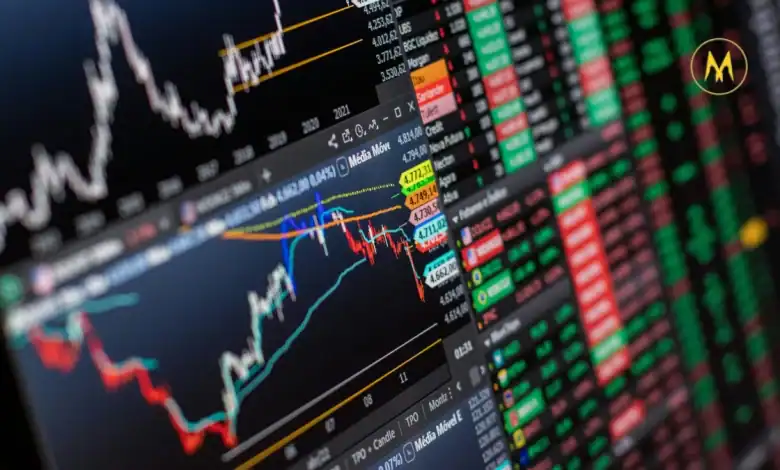Berkshire Hathaway Boosts UnitedHealth Stake While Scaling Back on Apple Shares
"Buffett’s Q2 2025 Portfolio Moves Signal a Strategic Shift Toward Healthcare and Risk Management"

Berkshire Hathaway has made fresh moves in its investment portfolio, revealing significant changes in the second quarter of 2025. The company, led by Warren Buffett, boosted its stake in UnitedHealth Group while cutting back on Apple shares. This update, disclosed through the SEC’s latest 13-F filing, has caught the attention of investors worldwide.
The shift is part of Berkshire Hathaway’s ongoing strategy to balance its portfolio between technology, healthcare, energy, and other stable sectors. UnitedHealth’s addition is a notable step into the healthcare space, while Apple’s reduction shows a cautious approach in managing tech exposure without abandoning it.
This article explores what these moves mean, why Berkshire made them, and how they fit into its long-term vision.
Berkshire Hathaway’s New Healthcare Bet
Berkshire Hathaway purchased 5.04 million shares of UnitedHealth Group, worth approximately $1.57 billion. This marks a bold entry into one of America’s largest and most influential healthcare companies. UnitedHealth is known for its strong market position, diversified services, and consistent earnings growth.
Buffett has historically favored companies with predictable revenue streams, and healthcare offers resilience during economic uncertainty. UnitedHealth’s broad network of insurance products, healthcare services, and data-driven operations makes it an attractive long-term investment.
The timing of this purchase suggests Berkshire is betting on rising healthcare demand as the U.S. population ages and medical innovation expands.
ALSO READ: How I Made My First $1,000 Online Without a Product
Scaling Back on Apple Shares
Apple remains Berkshire’s single largest holding, but the company sold 20 million shares during Q2 2025. This brings its total Apple shares to around 280 million, valued at about $65 billion.
While Apple continues to be a highly profitable business, Buffett’s reduction appears to be a way of managing portfolio risk and increasing cash reserves. It also provides flexibility for future investments if better opportunities arise.
This isn’t the first time Berkshire has trimmed its Apple stake. In past interviews, Buffett has explained that such sales don’t necessarily reflect a loss of confidence but rather strategic adjustments to maintain a balanced portfolio.
Other Portfolio Changes
In addition to the UnitedHealth purchase and Apple reduction, Berkshire made several other moves in Q2 2025:
- Increased stakes in Chevron, Constellation Brands, Domino’s Pizza, and Pool Corporation.
- New positions in Nucor, Lennar, D.R. Horton, Allegion, and Lamar Advertising.
- Exited completely from T-Mobile US.
- Reduced stakes in Charter Communications and Liberty Formula One.
These changes reveal a mix of defensive positioning and growth-oriented plays, with a tilt toward industries expected to remain strong in various economic conditions.
Why Healthcare Now?
Healthcare has become an increasingly important sector for long-term investors. It offers a combination of stability, recurring revenue, and potential for innovation. UnitedHealth’s data analytics, telemedicine expansion, and nationwide network make it a leader in this space.
Berkshire’s move also aligns with broader trends. Governments, insurers, and private companies are investing heavily in healthcare infrastructure, making it a sector that’s likely to keep growing regardless of short-term market volatility.
Apple Still a Core Holding
Despite the reduction, Apple still accounts for a massive portion of Berkshire’s equity portfolio. The company’s brand strength, loyal customer base, and ability to generate cash flow continue to make it a valuable long-term asset.
Apple’s services segment, including Apple Music, iCloud, and the App Store, has been growing rapidly, adding stability to its traditional hardware sales. Buffett has praised Apple’s management and product ecosystem, indicating that Berkshire will likely keep a significant stake for years to come.
Berkshire’s Record Cash Pile
By the end of Q2 2025, Berkshire was holding around $344 billion in cash. This unprecedented war chest gives the company flexibility to make big moves in times of opportunity.
High cash levels also serve as a buffer during economic downturns, allowing Berkshire to step in when other investors are pulling back. Buffett has often said he prefers to keep enough cash to handle unexpected situations without relying on external financing.
Market Reaction
Following the disclosure of these portfolio changes, UnitedHealth’s stock price initially dropped in after-hours trading before stabilizing. Apple’s share price also dipped slightly but remained near all-time highs.
Investors have mixed views—some see the Apple reduction as a sign of caution, while others view the UnitedHealth purchase as a strong long-term play.
What It Means for Investors
READ MORE: The Silent Takeover: How AI Agents Are Reshaping Digital Workflows in 2025
For retail investors, Berkshire Hathaway’s moves serve as a signal but not a direct instruction. The company’s strategy is based on long-term fundamentals, not short-term speculation.
If anything, these adjustments highlight the importance of diversification, sector balance, and the willingness to adapt to market conditions.
Final Thoughts
Berkshire Hathaway’s latest portfolio changes show a calculated shift into healthcare through UnitedHealth, while maintaining a substantial but slightly reduced position in Apple. With a record cash reserve, the company remains in a strong position to capitalize on future opportunities.
For investors, the key takeaway is that even the most trusted holdings can be adjusted when the market environment changes. The combination of stability in healthcare and caution in tech suggests Berkshire is preparing for both growth and resilience in the years ahead.
Frequently Asked Questions
1. Why did Berkshire Hathaway invest in UnitedHealth?
Berkshire likely sees UnitedHealth as a stable, growing company in a resilient industry, offering predictable earnings and long-term demand.
The reduction helps balance the portfolio and free up cash for other opportunities, without signaling a loss of confidence in Apple.
3. Is Apple still Berkshire’s largest holding?
Yes, Apple remains the largest single investment in Berkshire’s portfolio even after the reduction.
As of Q2 2025, Berkshire holds around $344 billion in cash and cash equivalents.
Not blindly. It’s best to understand your own goals and risk tolerance before mirroring large institutional investors.








